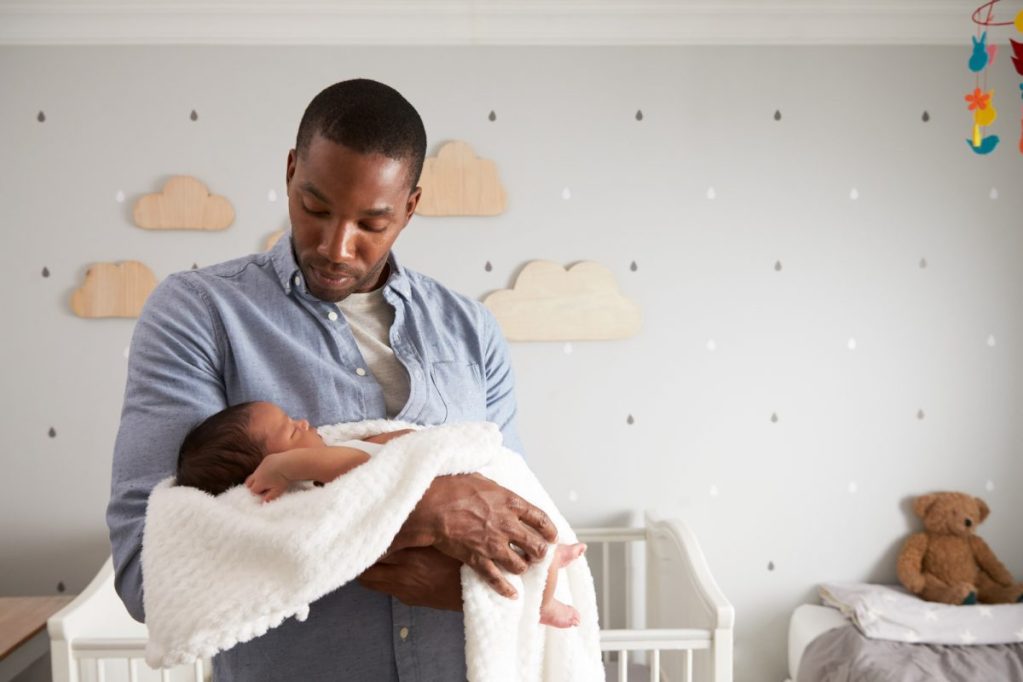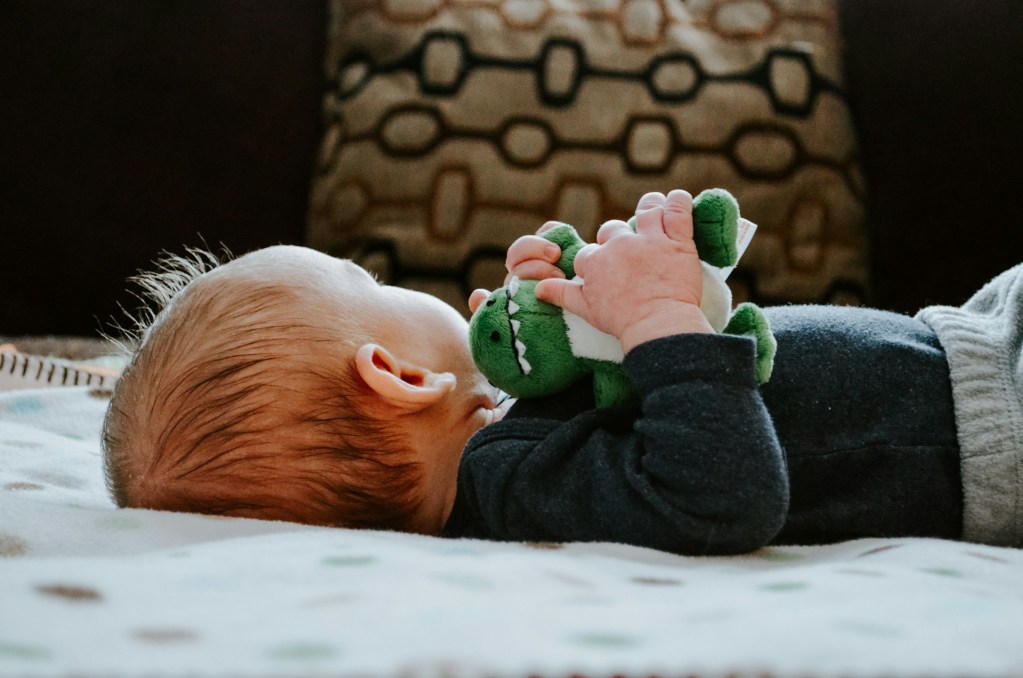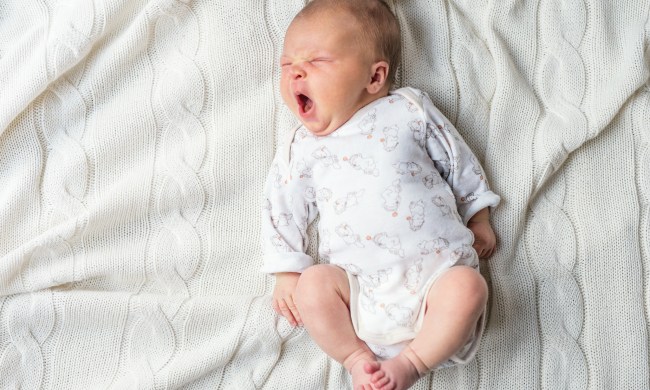Every parent loves to play with their newborn’s beautiful hair. We can’t help it. A few months later, you might notice a balding patch on the back of their head. If your child is born with a full head of hair but starts to lose it, don’t panic. It will grow back more beautiful than ever, and you will be jealous of how luscious it is. In the meantime, here’s when and why your newborn will experience baby hair loss.
Baby hair loss journey

When babies lose their hair
We all lose hair every day. Moms know hair loss after having a baby is a concern for themselves. But if you notice your newborn losing their hair, that’s OK.
- Babies are born with all stages of hair (or no hair).
- Peak baby hair loss is around 3 months old.
- Newborns could lose hair up to 6 months old.
By the time your little one is 3 months old, the hair they will lose should have fallen out. But your baby could shed hair until they are 6 months old. It’s natural and common and not something to immediately freak out about.
Why baby hair falls out
How often they are put down, how much they move their head, and when they sit up all play a part in the amount of hair loss. The material of things like the car seat, high chair, and mattress will have an impact since those places are where baby spends the most time.
Babies can’t get up and move around, let alone hold their heads up. The back of their head is constantly rubbing on something — their crib mattress, car seat, your body when being held, the play mat. Newborns aren’t mobile, so on their back is where they spend the most time. All of that friction pulls the hair out.
It’s also natural. All of our hair goes through a cycle. Your baby was just born. Even the gentlest birth is going to leave a bit of trauma and shock going from in the belly to the outside world. The shift in hormones and environment will cause a little bit of hair loss.
When baby hair starts to grow back
Most babies start to sit up a little bit around 4 months old. Since they won’t always be lying down by then, hair loss will slow. By 6 months old, baby has better neck and body control and will sit up for longer stretches of time, so you should notice the hair loss lessen.
Babies will have a funny bald patch on the back of their heads mixed with a full head of hair on top. It’s hilarious, OK to laugh at, and is temporary. Take pictures before the hair grows back in so you have them for high school graduation. By their first birthday, the hair will even out back there.
How to help with baby hair loss

There are ways parents and caregivers could help reduce the amount of hair baby will lose.
- Practice plenty of tummy time. This is the best way to reduce infant hair loss.
- If your child was born with a lot of hair, don’t over style it.
- Brush your child’s entire head daily.
- Alternate baby’s head at bedtime.
- Be gentle during bath time shampooing.
You might think brushing a bald baby’s head is a bit of overkill, but you should do it. It will stimulate the hair follicles to get those new hairs to grow in more fully. It’s also a great bonding time activity, and will calm you and baby down.
An important way to reduce the size of the bald patch is to embrace tummy time. Tummy time has multiple benefits beyond keeping the gorgeous hair from falling out, so give that baby a flip onto their stomach. And, yes, bows and headbands are irresistible on a newborn, but try to wait until your baby is a little older before you start styling their hair every day. Those clips and bands will break the hair even more.
Baby hair loss doesn’t mean something is wrong

As a parent, watching your child lose their hair might trigger you. It doesn’t mean you did something wrong if your kiddo has a bald spot or loses all their hair. You don’t need to cover the spot up with hats, either.
If you have concerns or your child is still losing hair beyond 6 months old, go ahead and bring it up to the doctor. Your child could have a skin or medical condition needing treatment. If the doctor has given the OK, keep the tips in mind on how to slow or stop hair loss and continue being the amazing parent you are. Remember, the hair will grow back.
Baby hair loss might seem like something is going horribly wrong, but take a breath and relax. Most babies lose their hair, with every child going through it differently. You might have one child who goes completely bald and another who only loses the littlest patch at the back of their head. Soon enough, your child will have gorgeous hair they can’t keep out of their eyes, and your next worry will be them getting stuff stuck in it.




